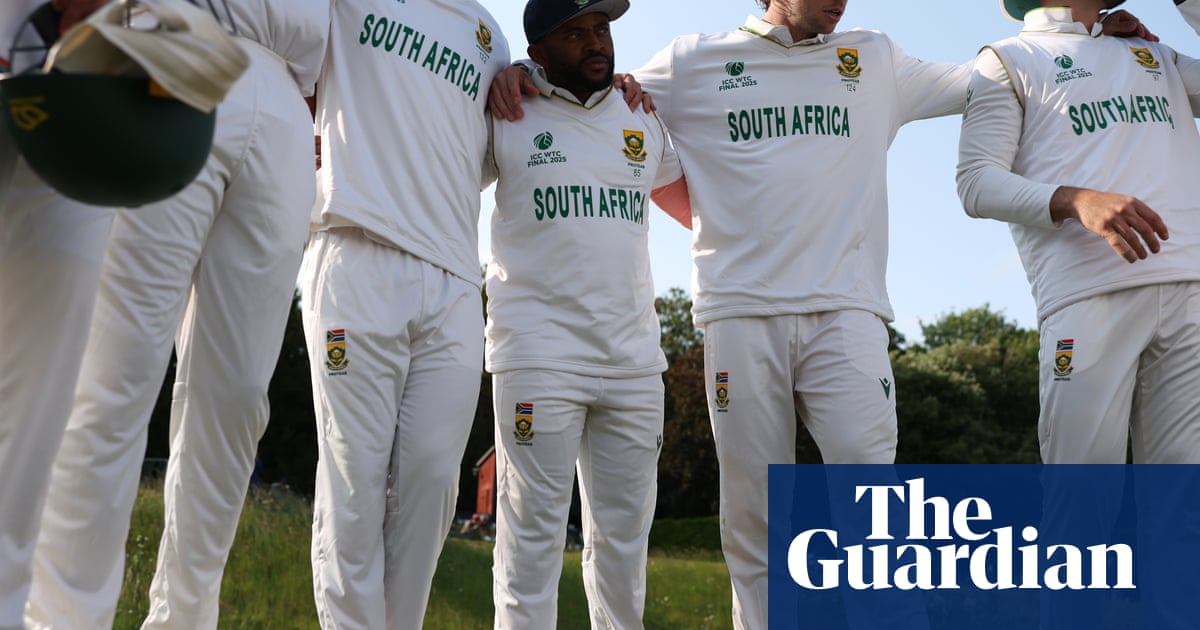ASouth African cricket fan’s standout World Cup catastrophe will depend on when they were born. Baby boomers cite the time, back in 1992, when Brian McMillan was left needing 22 runs off one ball after rain in Sydney washed away any hope of a chase. Millennials are forever haunted byAlan Donald’s dropped bat in that tied semi-final in 1999. Gen Zs must still be wondering how Heinrich Klaasen and David Miller failed to get over the line with 30 needed off as many balls in last year’s T20 final.
The Proteas choking when it matters most is a tale as old as the country itself. Longer, in fact, if you consider that Nelson Mandela was elected president two years after this story began. And throughout it all,one antagonist has loomed largest.
Australia have swung the axe on multiple occasions, as they did in 1999, 2007 and 2023. More often they were merely winning, providing a stark contrast to the misery felt across the Indian Ocean. There have been some moments to savour as a South African, like the famous “438-game” at the Wanderers in 2006. And three consecutive Test series wins down under between 2009 and 2017, as well as the home victory during the “sandpapergate” series in 2018, banished lingering insecurities in whites. But there’s an itch that’s yet to be scratched.
Every other major cricket nation has claimed a world title. Graeme Smith spearheaded a dynastic Test team that included Jacques Kallis, Dale Steyn, AB de Villiers and Hashim Amla. This group, perhaps the third greatest of all time behind the all-conquering West Indians and Australians before them, claimed two Test maces. Had there been aWorld Test Championship15 years ago this column wouldn’t exist. As it stands, a proper trophy lift followed by a ticker-tape parade has remained elusive.
This is why thisone-off Test against Australiameans so much to South Africa supporters. Forget the broader narratives around “big-three” takeovers, ICC ineptitude or the fungal encroachment of white-ball franchise leagues. We just want to feel what everyone else has felt. This nation has given so much to the game. There’s a good chance your national or domestic team benefits from South African-made muscle. Don’t we deserve even a morsel from the feast?
“We want it a lot,”Proteas skipper, Temba Bavuma, told the Guardian recently. “For the team, for myself, for the coach, for the country, that is something we really want. Maybe there is desperation around it. We don’t need to squirt around that. But it’s from a healthy point of view. It’s not do or die.”
Thank goodness for that, otherwise South African lawyers would be inundated with requests to write up last wills and testaments. Because no matter how much they want it, and how much we need it, the inarguable truth is that South Africa start this match as outsiders. Their coach, Shukri Conrad, dismissed that suggestion when he said, “South Africans should never be considered underdogs”. But they are. Even a tight win for Australia would exceed most realistic expectations.
Could this work in South Africa’s favour? The mental skills coach and former England spinner, Jeremy Snape, defines choking as, “losing from a winning position, or losing a game you should win, as a result of psychological pressures and the weight of expectation”. Well, that’s great news. Maybe now they can go out there and throw a few punches.Kagiso Rabada has an average of 23with the ball against Australia. Aiden Markram averages 60 with the bat. It only takes a handful of players to win a Test. What if, unburdened by presumption, South Africa rise to the occasion and pull off something miraculous?
Sign up toThe Spin
Subscribe to our cricket newsletter for our writers' thoughts on the biggest stories and a review of the week’s action
after newsletter promotion
Oh god, I’m doing it, aren’t I? I’m starting to hope. I’m starting to wonder how I might walk as a South African without King Kong sitting on my back, how I might breathe without the “chokers” tag constricting my air-flow. I’m starting to look back at all those heartaches and gaffs and tears in the rain and wonder if this was all part of some cosmic plan. If the lemons I’ve been forced to suck were palate cleansers for what’s to come.
I asked Bavuma if his team could do for the country what the Springboks rugby side have done by winning four World Cups. If lifting that mace would bring him his “Siya Kolisi moment”, where a Black man representing a fractured country could provide even the suggestion of unity through sporting triumph. Maybe it would, maybe it wouldn’t. My concerns are far more parochial now. Because speaking as a long-suffering South African, one with traumatic memories that stretch across generations, I simply want this for me. I know I’m not the only one.
